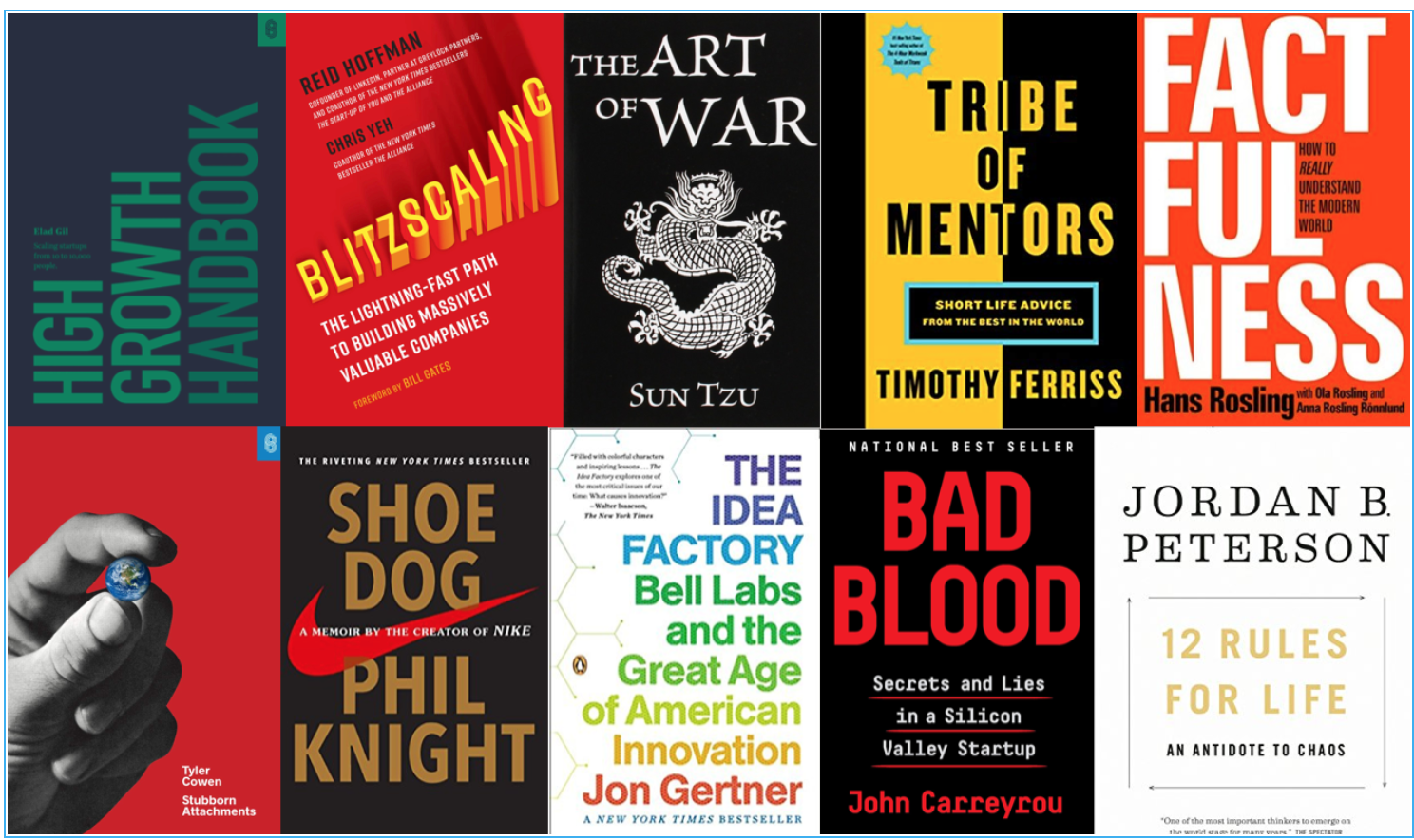A reader lives a thousand lives before he dies . . . The man who never reads lives only one.” — George R.R. Martin
Reading more was part of my goals for 2018 and I’ve averaged 1.3 books per month over the course of this year. This is an improvement but my goal is to double this number next year and diversify the genre and subject matter of books I’m reading. I’ve found it to be a very effective method for refining existing thoughts, mental models and bringing diverse thought to new areas in an effort to challenge my assumptions around what have become established processes and muscle memory for tackling day to day business challenges.
I’ve outlined below the top 10 books that have influenced how I think about the world in 2018.
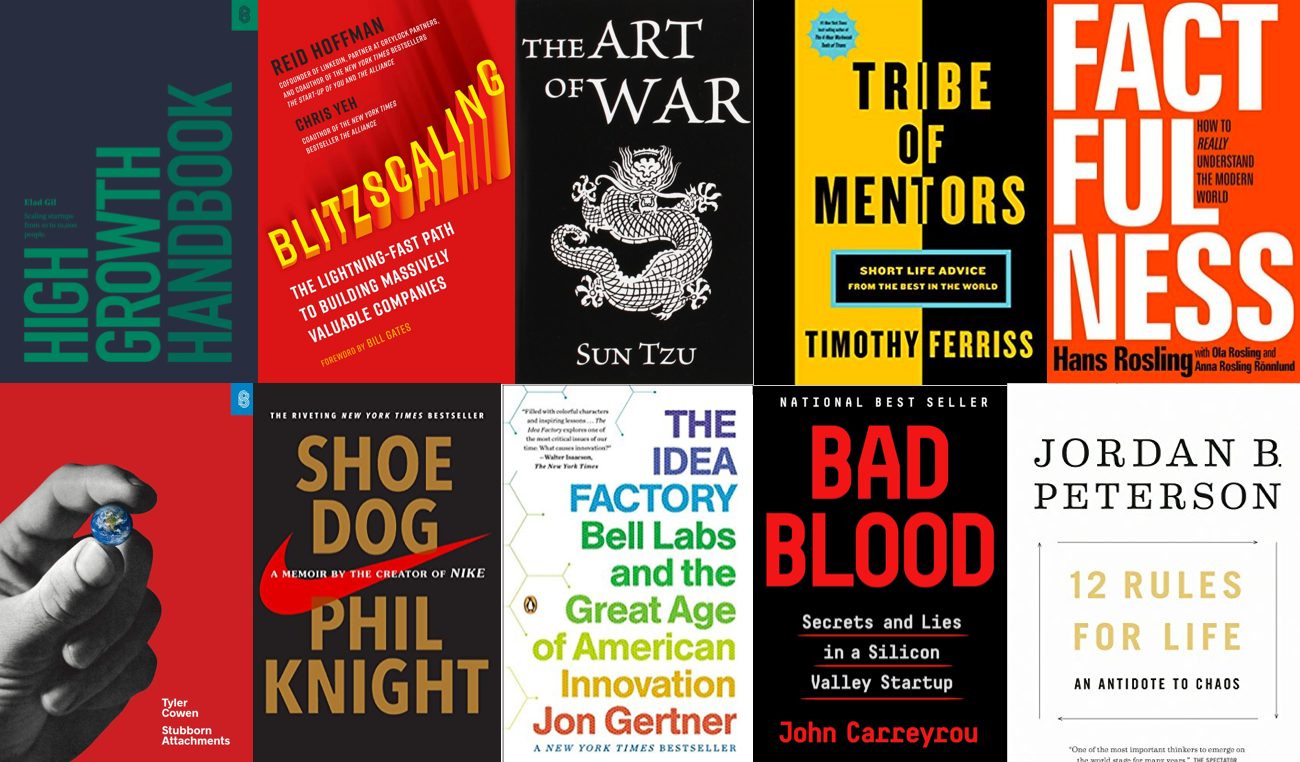
Number 1 - High Growth Handbook by Elad Gil
The High Growth Handbook by Elad Gil functions as a founder/operator bible to scaling challenges experienced during rapid company growth. The book incorporates all of the operator experience built up by Elad working with companies like Airbnb, Twitter, Google, Instacart, Coinbase, and Square. The topics covered in this book range from the role of CEO, board management, hiring and firing, IPO’s, M&A and product management.
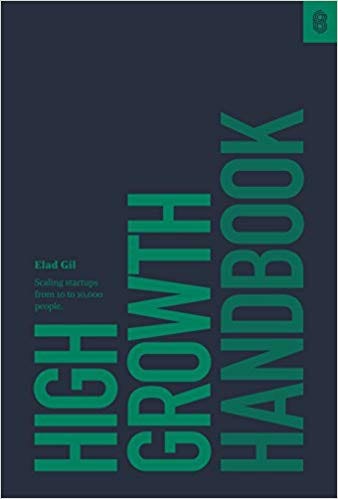
My favourite chapters feature Marc Andressen on scaling (pay special attention to his view of moats & drawbridges), Reid Hoffman on board management and Naval Ravikant on late stage funding with many more operators, founders and VC’s featured throughout.
Read if you’re looking for a scaling playbook, this is it
Number 2 - Blitzscaling by Reid Hoffman
Blitscaling is all about the set of best practices and methodologies created from day zero and embedded in companies that operate at hyper scale. The book focuses on the various stages of growth companies must graduate through as they go from product idea — product market fit — channel market fit — scale & beyond but more particularly how operating cadence, executional muscle and internal mindset must evolve in order to be successful.
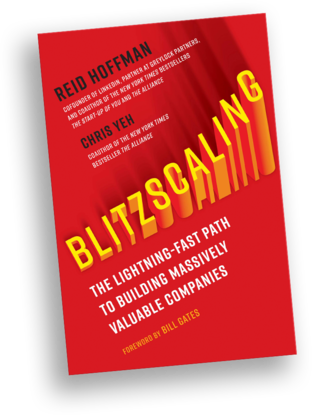
There are a bunch of great topics across all functional areas from the role of founder, company culture, business model design and growth strategies.
Read if you’re looking for a set of techniques for aggressively and sustainably achieving hyperscale.
Number 3 - The Art of War by Sun Tzu
This book had been on my list for a long time and finally got around to reading it following a recommendation from a guest on my podcast Michelle Kennedy founder of Peanut app. The Art of War was written 2500 years ago by Chinese military general & philosopher Sun Tzu and is as relevant today for competitive business strategy as it was upon it’s creation for war.
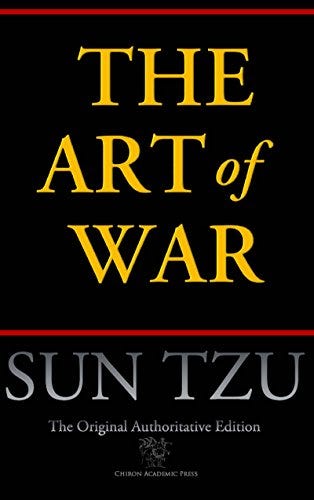
The book is broken down into 13 chapters that address everything from strategy formulation & execution to competitive analysis and scenario planning. A chapter on strategy formulation is amongst my favourites ‘let your plans be dark and impenetrable as night, and when you move, fall like a thunderbolt.”
The key message delivered in the book is to be hyper aware of the competencies of your competitor, your company and your team so you know what battles to take on and strategies for managing battles where your competitor is at an advantage.
Read if you’re looking for time tested advice for how to strategise and create mental toughness.
Number 4 - Tribe of Mentors by Tim Ferris
Fun fact — I’m slightly obsessed by the routines of highly effective people so was super interested to read Tim Ferris new book on the habits & rituals of the most effective people across many different industries beyond traditional tech.
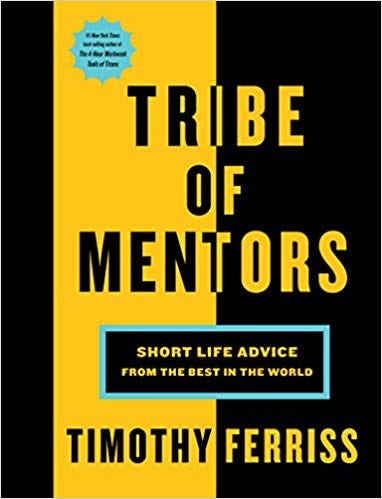
This book was a really useful refresher and acknowledgement of the importance of effective routines addressing everything from eliminating decision fatigue, meditative practices, work-life balance, goal-setting, decision making and priorities.
The biggest takeaway for me upon reading this book is that 90% of respondents have developed a daily meditative practice emphasising the importance of mindfulness in a routine to operate at maximum capacity.
Read if you’re looking for inspiration for building effective routines in your life.
Number 5 - Factfulness by Hans Rosling
It’s highly likely in everyday life to encounter people with anecdotal & qualitative views of the world. Sometimes these views are not grounded in fact but merely their own experience of the world making it no less relevant or valuable but not representative of the majority.
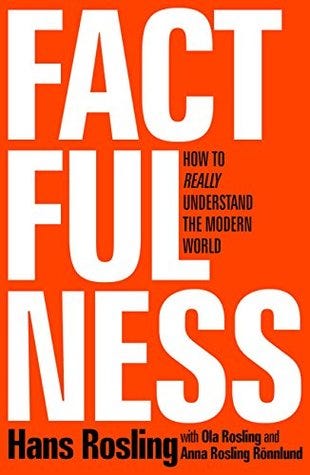
Rosling’s book is a great read to arm yourself with statistics and insights on key global trends for how the world is positively evolving and progressing on income, GDP, wealth generation, medicine, terrorism, and gender equality. Hans also explores the ten instincts that can distort our perspective of the world from gap instincts to negativity instincts based on an old world view.
The summary view is that the world is in a much greater state that is made out in the media or social media platforms.
Read if you want to own a fact based view of the world and eliminate biased perspectives.
Number 6 - Stubborn Attachments by Tyler Cowen
This book comes from a similar school of thought to Factfulness in that it’s core hypothesis is that economic growth can only be mostly positive for society but in doing so we have a responsibility to all of society and future societies. Cowen focuses much of his hypothesis on the importance of reconstructing our economies to optimise for a singular goal of maximising the sustainable rate of economic growth and lays out his playbook for achieving this through 3 key goals :
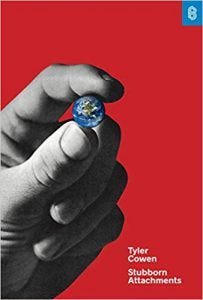
1) A moral priority of preserving and improving humanity’s long-term future
2) Optimising for long-term economic growth vs short-term gratification
3) Respecting human rights and following general principles
Read if you’re looking for an inclusive, non-political and progressive view on the philosophy of economic growth.
Number 7 - Shoe Dog by Phil Knight
For anybody that dreams of one day starting their own venture or startup this book is for you. The memoir tells the story of Phil Knights journey to building a $80B company and all of the obstacles he encountered along the way. Knight started his company selling Japanese shoes out of his car at the age of 24 following a backpacking tour around the world making $8k in sales in his first year.
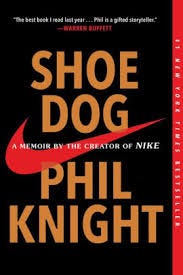
The overnight success stories are never overnight success stories and with a lot of hustle and people who believe in your mission companies like Nike become possible.
Read if you’re looking for a gritty story of the sacrifices required to build an enduring successful company.
Number 8 - Idea Factory by Jon Gertner
Bell Labs was the innovation wing of AT&T producing some of the world’s most advanced technologies between 1920 and 1980 such as the transistor and the laser. As compared to any other lab Bell Labs had the strongest frequency and quality of output from a product and innovation point of view.
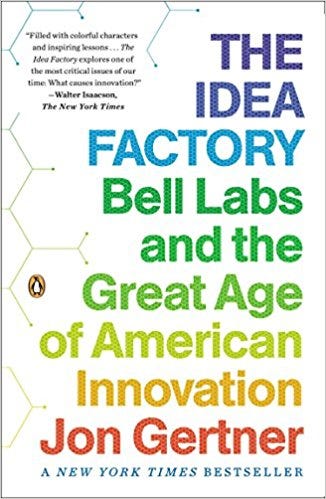
In this book Jon Gertner uncovers the blueprint for Bell’s approach to inventing products along with a plethora of best practices abided by from how to create a proof of concept product from scientific validation, management best practices, talent management and solution design.
Read if you’re seeking to understand industrialisation of your product design approach and develop a blueprint for success.
Number 9 - Bad Blood by John Carreyrou
Sometimes Silicon Valley can get a bad rap on founder hype and this is a story which proves out the propensity for SV to drink it’s own kool-aid. Bad Blood tells the tale of Elizabeth Holmes deception in building $9B company Theranos exposed by investigative journalist John Carreyrou.
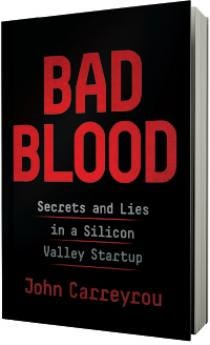
The story is an expose on all of the ethical, legal and moral violations by Holmes and how effective salesmanship enabled her to peddle this lie for years to investors and employees.
Read if you’re looking for a shock and awe story of how one founder faked success and fell from grace.
Number 10 - 12 Rules for Life by Jordan Peterson
Given Peterson’s rise in the media throughout 2018 I curiously caught his show at the Apollo in London earlier this year. I would encourage you to take with a pinch of salt the majority of what is portrayed in political media about Peterson; his views are liberal, centrist & progressive grounded in academic literature and appeal to a very diverse group of people as evidenced by the success of the book and diversity at the venue.
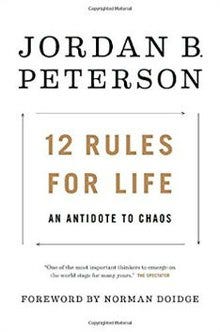
The book is brilliantly written clearly displaying Peterson’s dexterity of thought grounded in ethical principles, history & psychology. As with any book it is designed to offer perspective and not serve as an operating manual for how you should lead your life but it is undeniably additive to the rich body of work in creating a more responsible and self-aware society.
Read if you’re seeking to broaden your perspective on what it means to lead a purposeful life.
